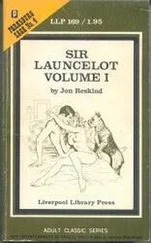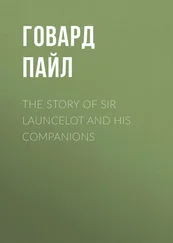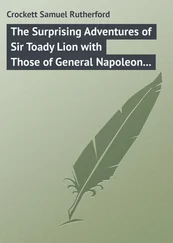Tobias Smollett - The Adventures of Sir Launcelot Greaves
Здесь есть возможность читать онлайн «Tobias Smollett - The Adventures of Sir Launcelot Greaves» — ознакомительный отрывок электронной книги совершенно бесплатно, а после прочтения отрывка купить полную версию. В некоторых случаях можно слушать аудио, скачать через торрент в формате fb2 и присутствует краткое содержание. Жанр: Прочие приключения, Прочие приключения, foreign_antique, foreign_prose, на английском языке. Описание произведения, (предисловие) а так же отзывы посетителей доступны на портале библиотеки ЛибКат.
- Название:The Adventures of Sir Launcelot Greaves
- Автор:
- Жанр:
- Год:неизвестен
- ISBN:нет данных
- Рейтинг книги:4 / 5. Голосов: 1
-
Избранное:Добавить в избранное
- Отзывы:
-
Ваша оценка:
- 80
- 1
- 2
- 3
- 4
- 5
The Adventures of Sir Launcelot Greaves: краткое содержание, описание и аннотация
Предлагаем к чтению аннотацию, описание, краткое содержание или предисловие (зависит от того, что написал сам автор книги «The Adventures of Sir Launcelot Greaves»). Если вы не нашли необходимую информацию о книге — напишите в комментариях, мы постараемся отыскать её.
The Adventures of Sir Launcelot Greaves — читать онлайн ознакомительный отрывок
Ниже представлен текст книги, разбитый по страницам. Система сохранения места последней прочитанной страницы, позволяет с удобством читать онлайн бесплатно книгу «The Adventures of Sir Launcelot Greaves», без необходимости каждый раз заново искать на чём Вы остановились. Поставьте закладку, и сможете в любой момент перейти на страницу, на которой закончили чтение.
Интервал:
Закладка:
There is little more to say of Sir Launcelot Greaves, except in the way of literary history. The given name of the hero may or may not be significant. It is safe to say that if a Sir Launcelot had appeared in fiction one or two generations earlier, had the fact been recognised (which is not indubitable) that he bore the name of the most celebrated knight of later Arthurian romance, he would have been nothing but a burlesque figure. But in 1760, literary taste was changing. Romanticism in literature had begun to come to the front again, as Smollett had already shown by his romantic leanings in Count Fathom. With it there came interest in the Middle Ages and in the most popular fiction of the Middle Ages, the “greatest of all poetic subjects,” according to Tennyson, the stories of Arthur and his Knights of the Round Table, which, for the better part of a century, had been deposed from their old-time place of honour. These stories, however, were as yet so imperfectly known—and only to a few—that the most to be said is that some connection between their reviving popularity and the name of Smollett’s knight-errant hero is not impossible.
Apart from this, Sir Launcelot Greaves is interesting historically as ending Smollett’s comparatively long silence in novel-writing after the publication of Fathom in 1753. His next work was the translation of Don Quixote, which he completed in 1755, and which may first have suggested the idea of an English knight, somewhat after the pattern of the Spanish. Be that as it may, before developing the idea, Smollett busied himself with his Complete History of England, and with the comedy, The Reprisal: or the Tars of Old England, a successful play which at last brought about a reconciliation with his old enemy, Garrick. Two years later, in 1759, as editor of the Critical Review, Smollett was led into a criticism of Admiral Knowles’s conduct that was judged libellous enough to give its author three months in the King’s Bench prison, during which time, it has been conjectured, he began to mature his plans for the English Quixote. The result was that, in 1760 and 1761, Sir Launcelot Greaves came out in various numbers of the British Magazine. Scott has given his authority to the statement that Smollett wrote many of the instalments in great haste, sometimes, during a visit in Berwickshire, dashing off the necessary amount of manuscript in an hour or so just before the departure of the post. If the story is true, it adds its testimony to that of his works to the author’s extraordinarily facile pen. Finally, in 1762, the novel thus hurried off in instalments appeared as a whole. This method of its introduction to the public gives Sir Launcelot Greaves still another claim to interest. It is one of the earliest English novels, indeed the earliest from the pen of a great writer, published in serial form.
G. H. MAYNADIER.
CHAPTER ONE
It was on the great northern road from York to London, about the beginning of the month of October, and the hour of eight in the evening, that four travellers were, by a violent shower of rain, driven for shelter into a little public-house on the side of the highway, distinguished by a sign which was said to exhibit the figure of a black lion. The kitchen, in which they assembled, was the only room for entertainment in the house, paved with red bricks, remarkably clean, furnished with three or four Windsor chairs, adorned with shining plates of pewter, and copper saucepans, nicely scoured, that even dazzled the eyes of the’ beholder; while a cheerful fire of sea-coal blazed in the chimney. Three of the travellers, who arrived on horseback, having seen their cattle properly accommodated in the stable, agreed to pass the time, until the weather should clear up, over a bowl of rumbo, which was accordingly prepared. But the fourth, refusing to join their company, took his station at the opposite side of the chimney, and called for a pint of twopenny, with which he indulged himself apart. At a little distance, on his left hand, there was another group, consisting of the landlady, a decent widow, her two daughters, the elder of whom seemed to be about the age of fifteen, and a country lad, who served both as waiter and ostler.
The social triumvirate was composed of Mr. Fillet, a country practitioner in surgery and midwifery, Captain Crowe, and his nephew Mr. Thomas Clarke, an attorney. Fillet was a man of some education, and a great deal of experience, shrewd, sly, and sensible. Captain Crowe had commanded a merchant ship in the Mediterranean trade for many years, and saved some money by dint of frugality and traffic. He was an excellent seaman, brave, active, friendly in his way, and scrupulously honest; but as little acquainted with the world as a sucking child; whimsical, impatient, and so impetuous, that he could not help breaking in upon the conversation, whatever it might be, with repeated interruptions, that seemed to burst from him by involuntary impulse. When he himself attempted to speak he never finished his period; but made such a number of abrupt transitions, that his discourse seemed to be an unconnected series of unfinished sentences, the meaning of which it was not easy to decipher.
His nephew, Tom Clarke, was a young fellow, whose goodness of heart even the exercise of his profession had not been able to corrupt. Before strangers he never owned himself an attorney without blushing, though he had no reason to blush for his own practice, for he constantly refused to engage in the cause of any client whose character was equivocal, and was never known to act with such industry as when concerned for the widow and orphan, or any other object that sued in forma pauperis. Indeed, he was so replete with human kindness, that as often as an affecting story or circumstance was told in his hearing, it overflowed at his eyes. Being of a warm complexion, he was very susceptible of passion, and somewhat libertine in his amours. In other respects, he piqued himself on understanding the practice of the courts, and in private company he took pleasure in laying down the law; but he was an indifferent orator, and tediously circumstantial in his explanations. His stature was rather diminutive; but, upon the whole, he had some title to the character of a pretty, dapper, little fellow.
The solitary guest had something very forbidding in his aspect, which was contracted by an habitual frown. His eyes were small and red, and so deep set in the sockets, that each appeared like the unextinguished snuff of a farthing candle, gleaming through the horn of a dark lanthorn. His nostrils were elevated in scorn, as if his sense of smelling had been perpetually offended by some unsavoury odour; and he looked as if he wanted to shrink within himself from the impertinence of society. He wore a black periwig as straight as the pinions of a raven, and this was covered with a hat flapped, and fastened to his head by a speckled handkerchief tied under his chin. He was wrapped in a greatcoat of brown frieze, under which he seemed to conceal a small bundle. His name was Ferret, and his character distinguished by three peculiarities. He was never seen to smile; he was never heard to speak in praise of any person whatsoever; and he was never known to give a direct answer to any question that was asked; but seemed, on all occasions, to be actuated by the most perverse spirit of contradiction.
Captain Crowe, having remarked that it was squally weather, asked how far it was to the next market town; and understanding that the distance was not less than six miles, said he had a good mind to come to an anchor for the night, if so be as he could have a tolerable berth in this here harbour. Mr. Fillet, perceiving by his style that he was a seafaring gentleman, observed that their landlady was not used to lodge such company; and expressed some surprise that he, who had no doubt endured so many storms and hardships at sea, should think much of travelling five or six miles a-horseback by moonlight. “For my part,” said he, “I ride in all weathers, and at all hours, without minding cold, wet, wind, or darkness. My constitution is so case-hardened that I believe I could live all the year at Spitzbergen. With respect to this road, I know every foot of it so exactly, that I’ll engage to travel forty miles upon it blindfold, without making one false step; and if you have faith enough to put yourselves under my auspices, I will conduct you safe to an elegant inn, where you will meet with the best accommodation.” “Thank you, brother,” replied the captain, “we are much beholden to you for your courteous offer; but, howsomever, you must not think I mind foul weather more than my neighbours. I have worked hard aloft and alow in many a taut gale; but this here is the case, d’ye see; we have run down a long day’s reckoning; our beasts have had a hard spell; and as for my own hap, brother, I doubt my bottom-planks have lost some of their sheathing, being as how I a’n’t used to that kind of scrubbing.”
Читать дальшеИнтервал:
Закладка:
Похожие книги на «The Adventures of Sir Launcelot Greaves»
Представляем Вашему вниманию похожие книги на «The Adventures of Sir Launcelot Greaves» списком для выбора. Мы отобрали схожую по названию и смыслу литературу в надежде предоставить читателям больше вариантов отыскать новые, интересные, ещё непрочитанные произведения.
Обсуждение, отзывы о книге «The Adventures of Sir Launcelot Greaves» и просто собственные мнения читателей. Оставьте ваши комментарии, напишите, что Вы думаете о произведении, его смысле или главных героях. Укажите что конкретно понравилось, а что нет, и почему Вы так считаете.












